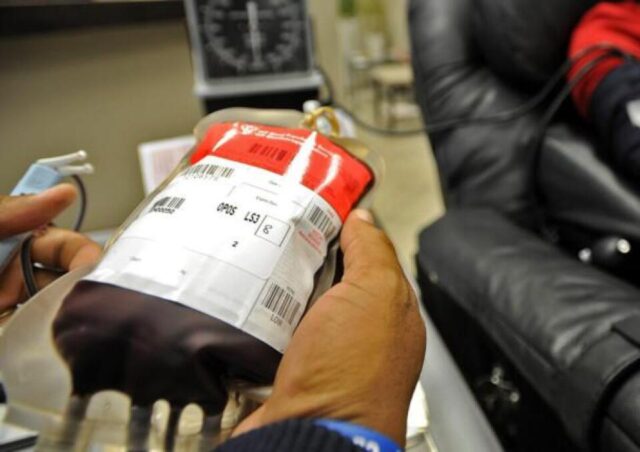The SA National Blood Service said it was experiencing a high demand for blood from hospitals across the country, so much so that the nation’s blood stocks were strained.
WITH no known substitute for life-giving blood, the South African National Blood Service (SANBS) has called on citizens to help bulk up stock levels to give health stakeholders one less hurdle to overcome.
The SANBS called for South Africans to urgently donate blood to help it keep up with heightened demand as it announced that the state of the nation’s blood stocks was “significantly low”.
Thandi Mosupye of the SANBS said they were experiencing a high demand for blood from hospitals across the country, so much so that the nation’s blood stocks were strained, necessitating their appeal for increased donations to help those who may need transfusions at this time.
We are approaching critically low stock levels and we need your help.
Drop us your location to find your nearest donation site. pic.twitter.com/i27MJqCTct
— The SANBS (@theSANBS) February 8, 2023
Mosupye said that in recent days blood stocks had “lingered below three days over a prolonged period” and to avoid reaching critically low levels, the non-profit organisation needed South Africans, be they active donors, lapsed donors or potential donors, to bolster the national blood stocks.
“We commend the donors who remain steadfast in their commitment to saving lives. Right now, we need all the help we can get from current and potential donors. Blood group O and B individuals can make the biggest, immediate difference to the situation we face right now.
“Moreover, we ask South Africans to become regular donors by donating blood so we can easily maintain safe stock levels throughout the year.
“Don’t let South Africa run out of safe blood, donate today. To be eligible to donate blood, you have to be between 16 and 75 years old and weigh more than 50kg,” she said.
Khensani Mahlangu, also of the SANBS, added that the bulk of the blood the bank received went to maternal health to assist mothers and babies, as well as cancer patients undergoing chemotherapy and other procedures.
What if, in 90 minutes, you can #changealife? What if, in that time, you could add another day, another week, another year to someone's life?
Become a platelet donor today.
Find out how: https://t.co/2U4sbfCnHU #plateletdonation pic.twitter.com/TGYVSaYkrS
— The SANBS (@theSANBS) November 8, 2022
Mahlangu said people living with chronic conditions such as anaemia also required frequent blood transfusions to lead regular lives.
According to Mahlangu, the service often experienced shortages, depending on the seasons, and especially in the period after the festive season, as fewer people took the time to donate.
She said the reason for this was that often hospitals postponed scheduled surgeries and other non-emergency procedures, however, after the festive break the need became more pronounced.
“It’s not ideal, and no one wants a situation where we have to ration or select which procedures hospitals need to prioritise due to the low blood levels, because at the end of the day it means someone has to stay sick for longer.”








